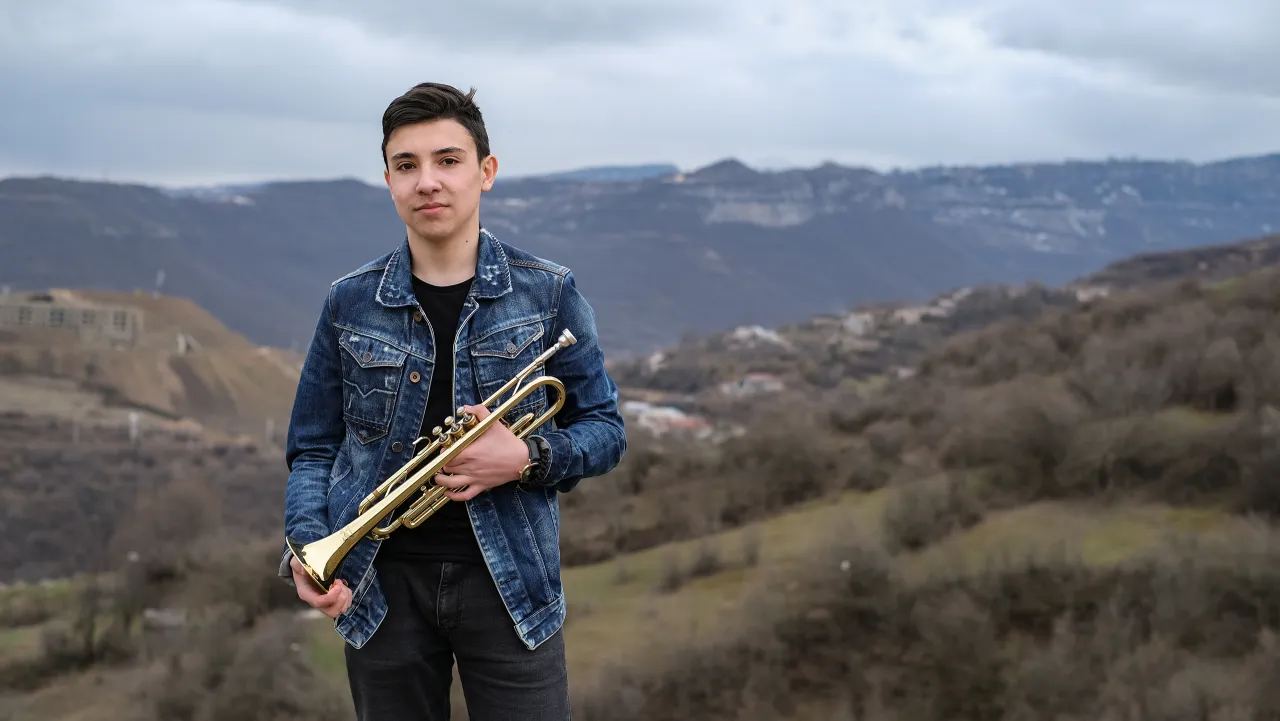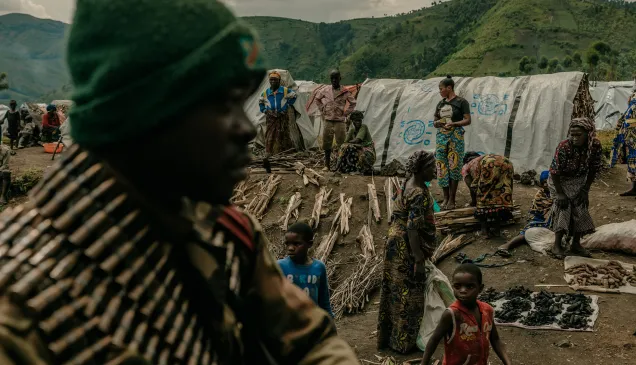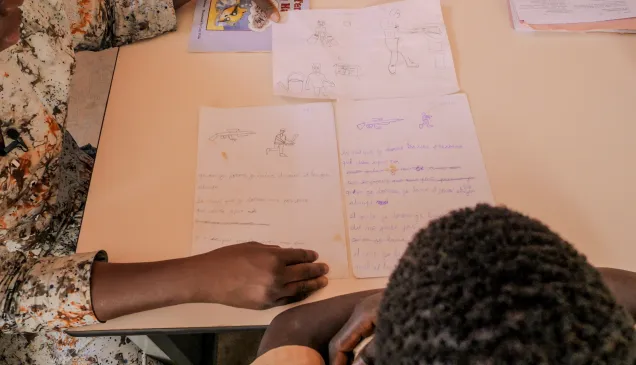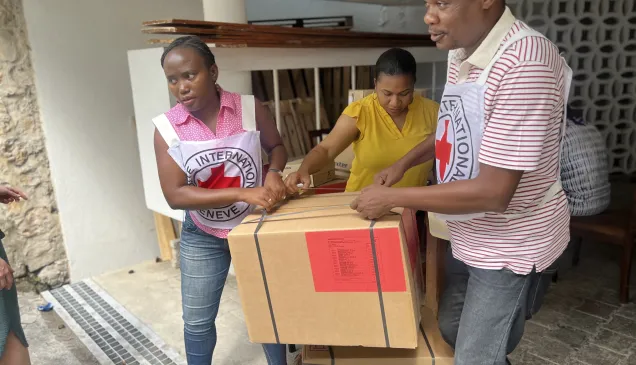Nagorno-Karabakh conflict: How music helped a displaced boy overcome his fears
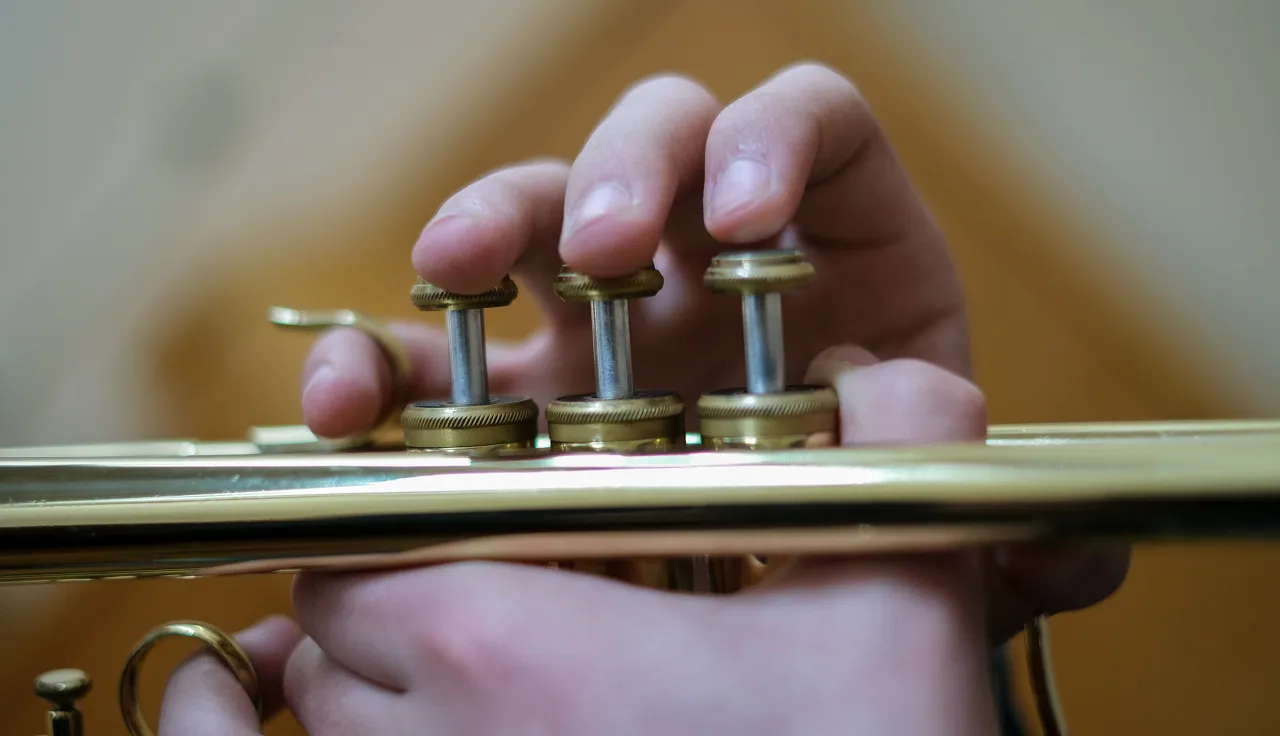
A group of teenage musicians get ready to play their instruments. One of them is playing the trumpet, accompanied by a drummer and choir. With his eyes closed and fingers moving deftly over the trumpet keys, the youngster is deeply immersed in the music.
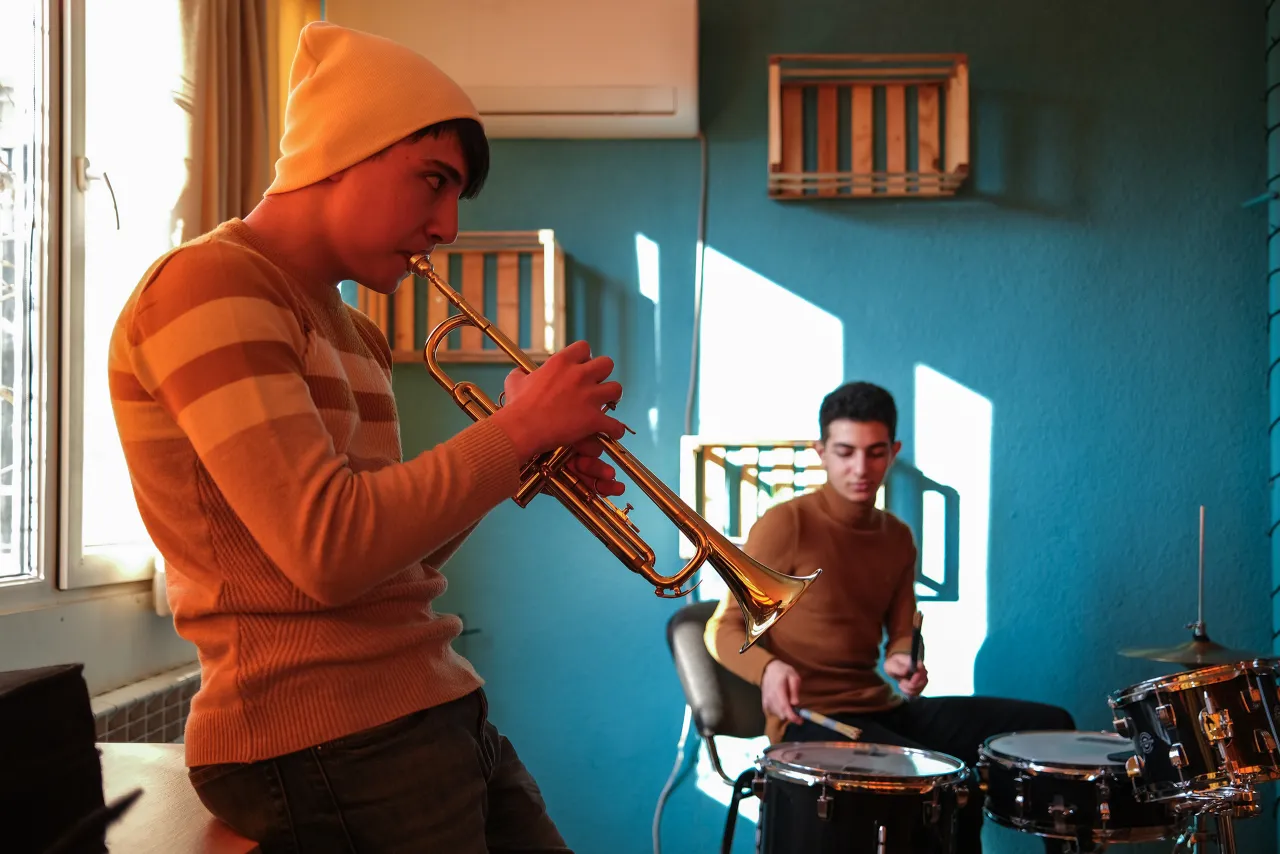
In autumn 2020, an escalation of the Nagorno-Karabakh conflict forced Vahagn Abaghyan, 16, his mother and brother to flee and seek refuge in Yerevan, Armenia. Despite the hardship of displacement, Vahagn's gift of music helped him cope with this new reality. He even started attending a local arts centre in Yerevan.
"My love for music comes from my grandfather who used to play shvi, Armenian traditional pipes and had a refined taste in folk songs," Vahagn recalls.
As a child, the songs he played touched me at a deep emotional level and I decided to become a musician.
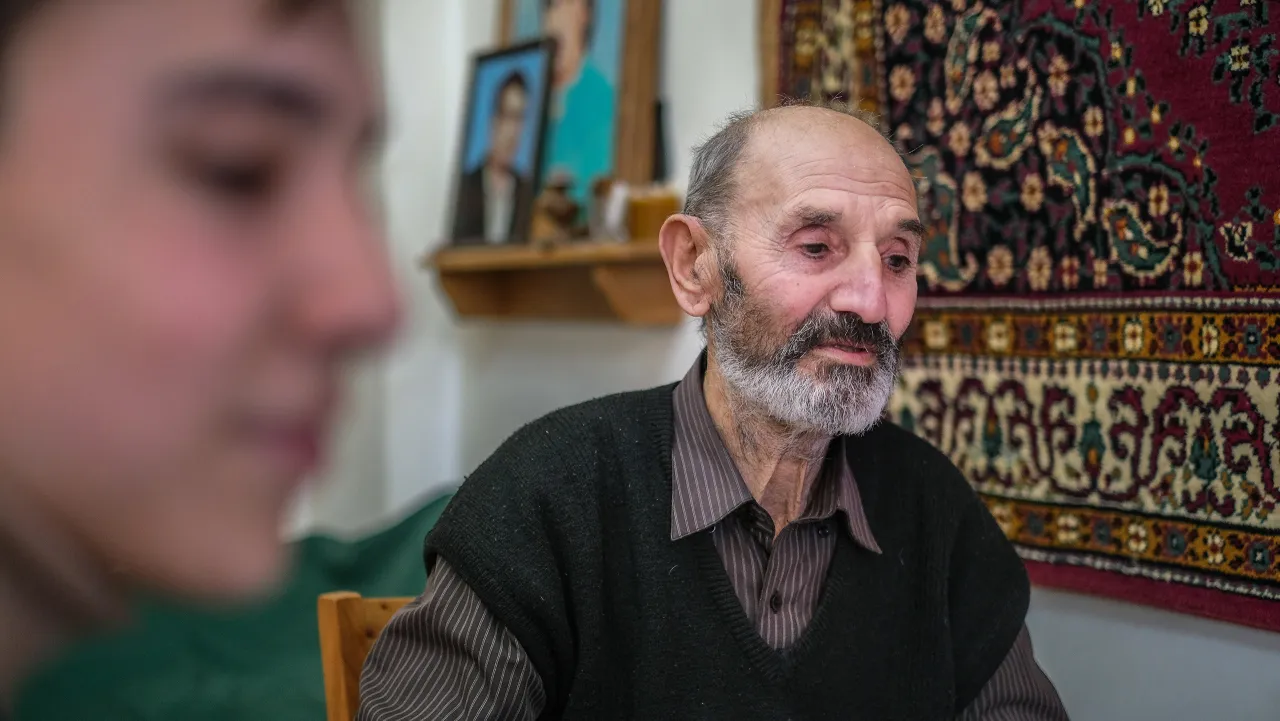
When Vahagn turned eight, his mother took him to a music school for classical trumpet lessons. This was the first step towards his goal of becoming a professional musician. "I remember calling our relatives, putting the phone on speaker mode and playing the trumpet for them," he laughs. "Only after playing would I talk to them."
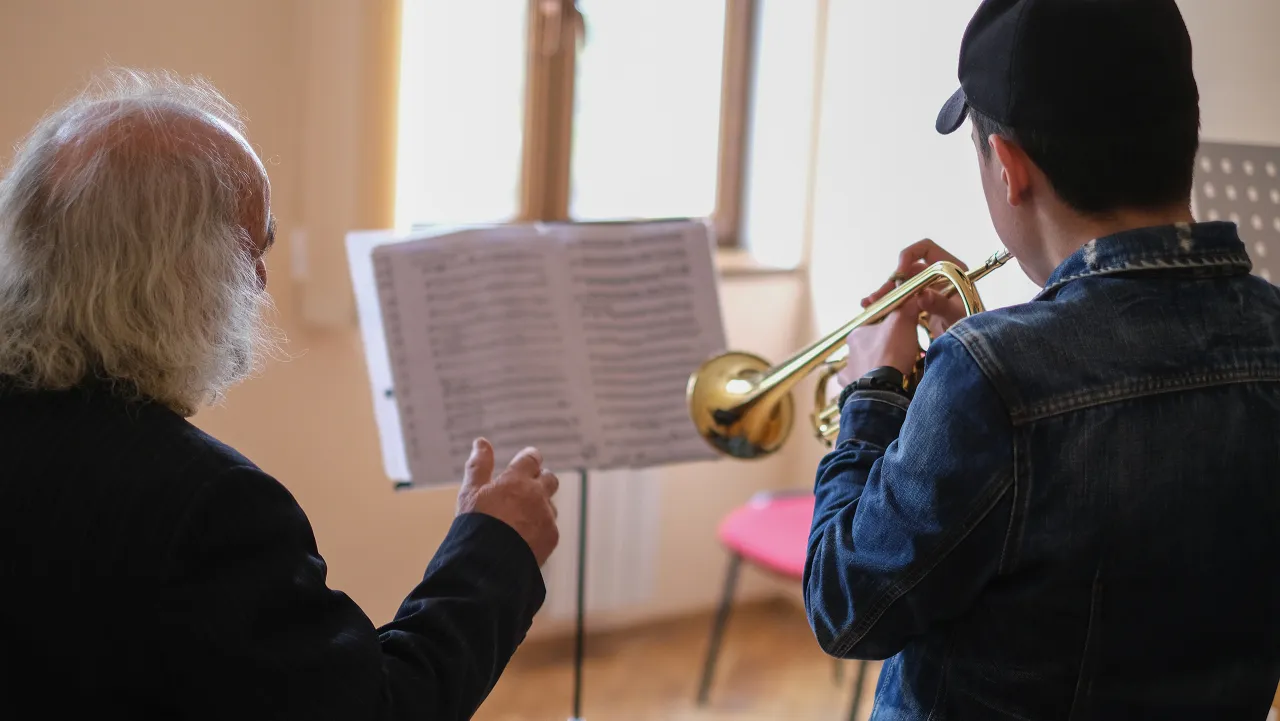
A fervent lover of music and a hardworking youngster, Vahagn soon became a pre-eminent trumpet player in his community. "I learned music which very few could play, but I didn't consider this to be an extraordinary achievement," says Vahagn modestly. An international music contest he took part in three years ago introduced him to the world of arts on a much larger scale. "I didn't like how I played at all," he recalls, "but I received a loud ovation from the audience."
I was surprised to learn that I won first place. I never stopped improving my skills from then on.
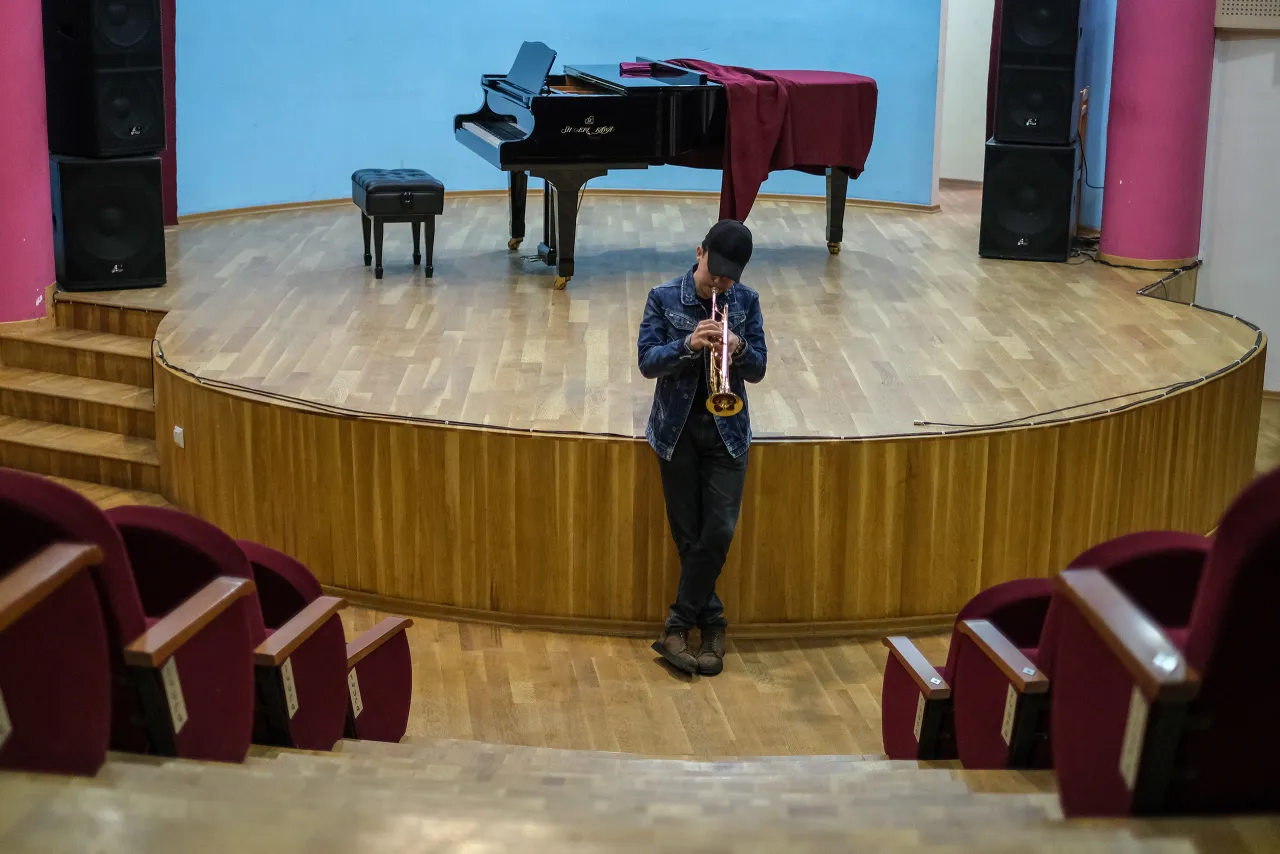
Vahagn recalls his hometown and its serenity with affection. "As someone who was born after the 1990s, I had no inkling that war was just around the corner and that one day it would erupt again," he says. In autumn 2020, just a few days before the hostilities resumed, Vahagn had joined a music college. Three weeks in, his studies were interrupted by the sound of shelling over their town.
At first, I mistook the shelling for fireworks.
"Then I noticed the mirrors shaking and only after looking out of the window did I understand the full extent of what was happening," Vahagn recalls.
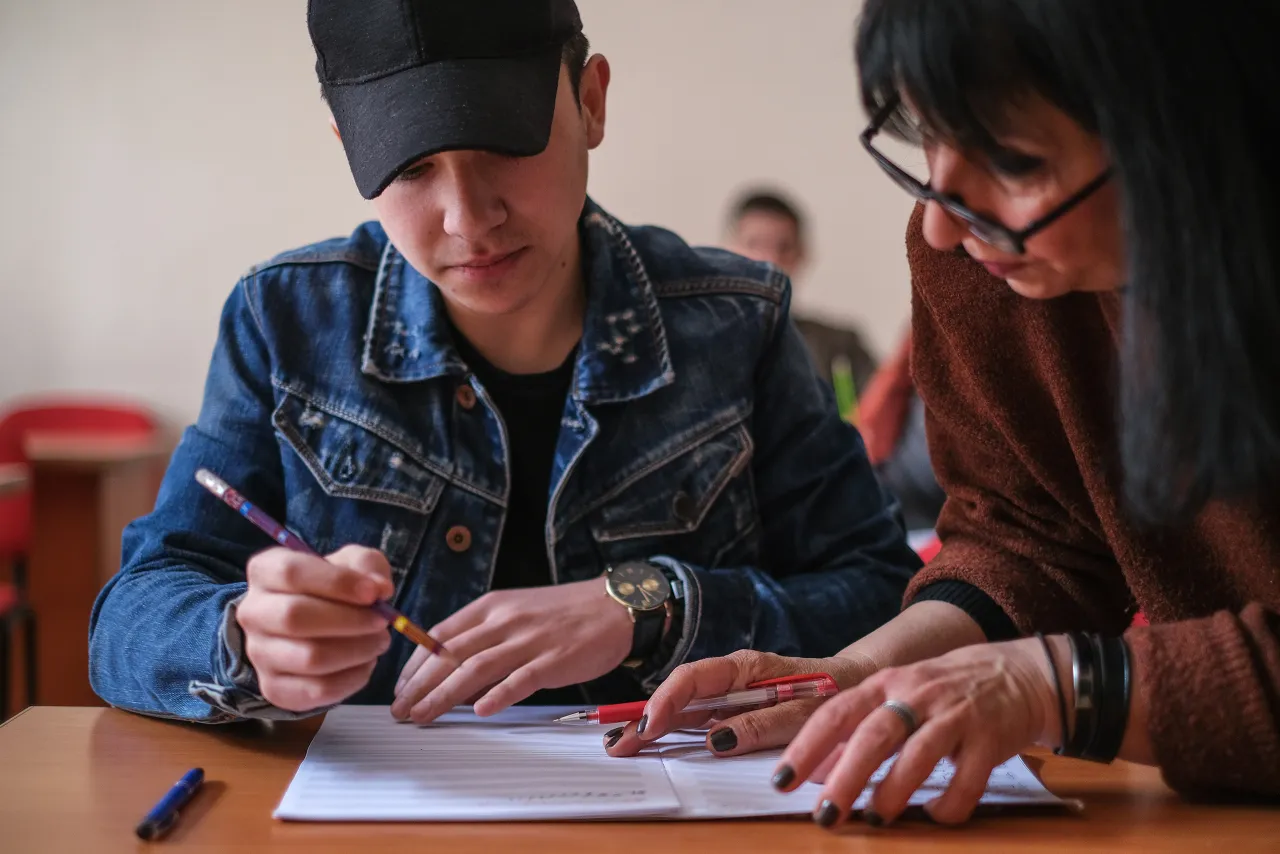
He spent two days hiding in a basement with his mother, but soon it was too dangerous to stay there. Vahagn's family had to leave their hometown, never to return. "We only managed to grab some clothing, a few documents and my trumpet. It's such a pity we didn't take any family photographs. They were so precious to me," says Vahagn with a sigh.
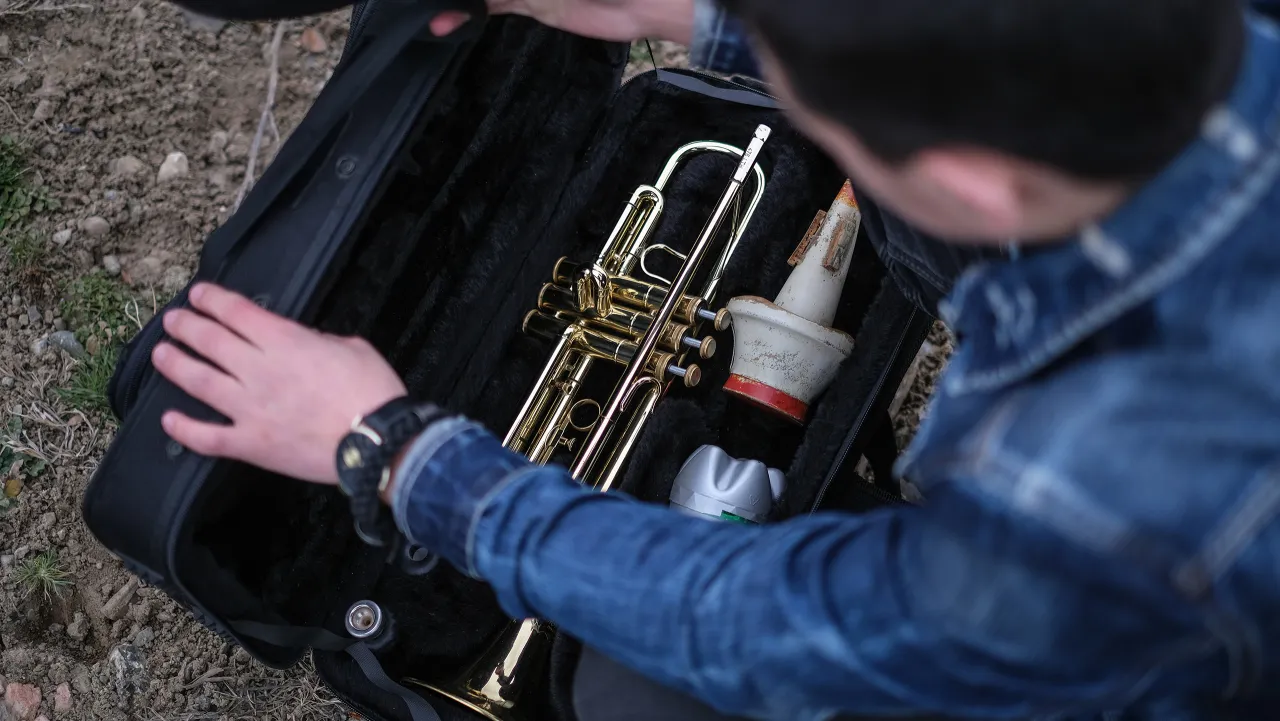
Since being displaced, Vahagn has been trying his best to come to terms with the new reality of his life. "No matter how small the art environment in my hometown, I thrived in it. I grew up and went to school there, all my friends were there," he says wistfully.
One can truly feel at peace at home. You can never forget your home; it stays with you forever.
Memories of home were even more painful when the family found itself in an overcrowded dormitory without decent living conditions. There was no place to study or play music. Initially, Vahagn couldn't bring himself to pick up his trumpet or study. "I thought I would never be able to continue my education because of war," he says.
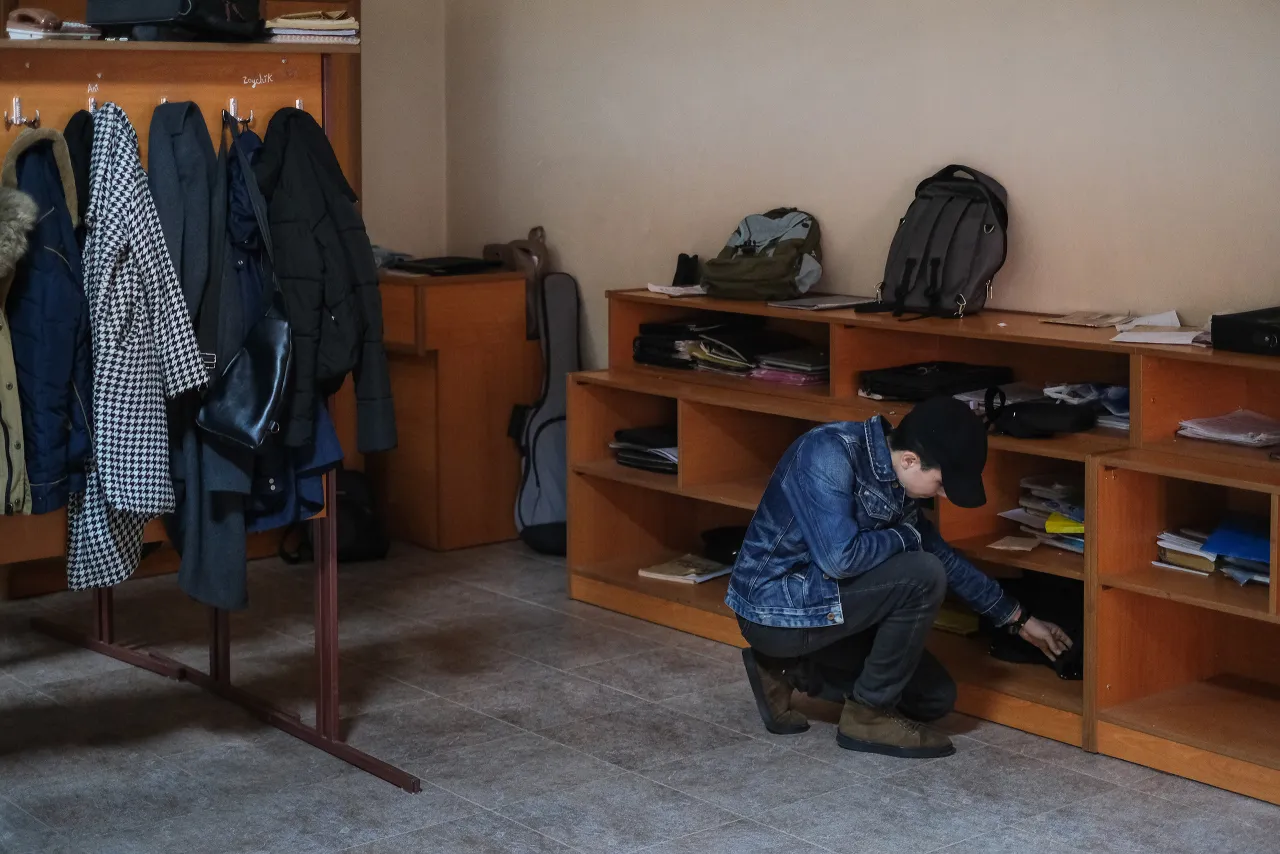
"After a while, together with my friends, I decided to play music in the streets. We were noticed by the head of a music school in Yerevan and he invited us to form a band and give concerts together with other displaced children. Music saved us! Simple things like going out, meeting new people, playing songs and being creative became the only ways of overcoming my despair and fears," he adds.
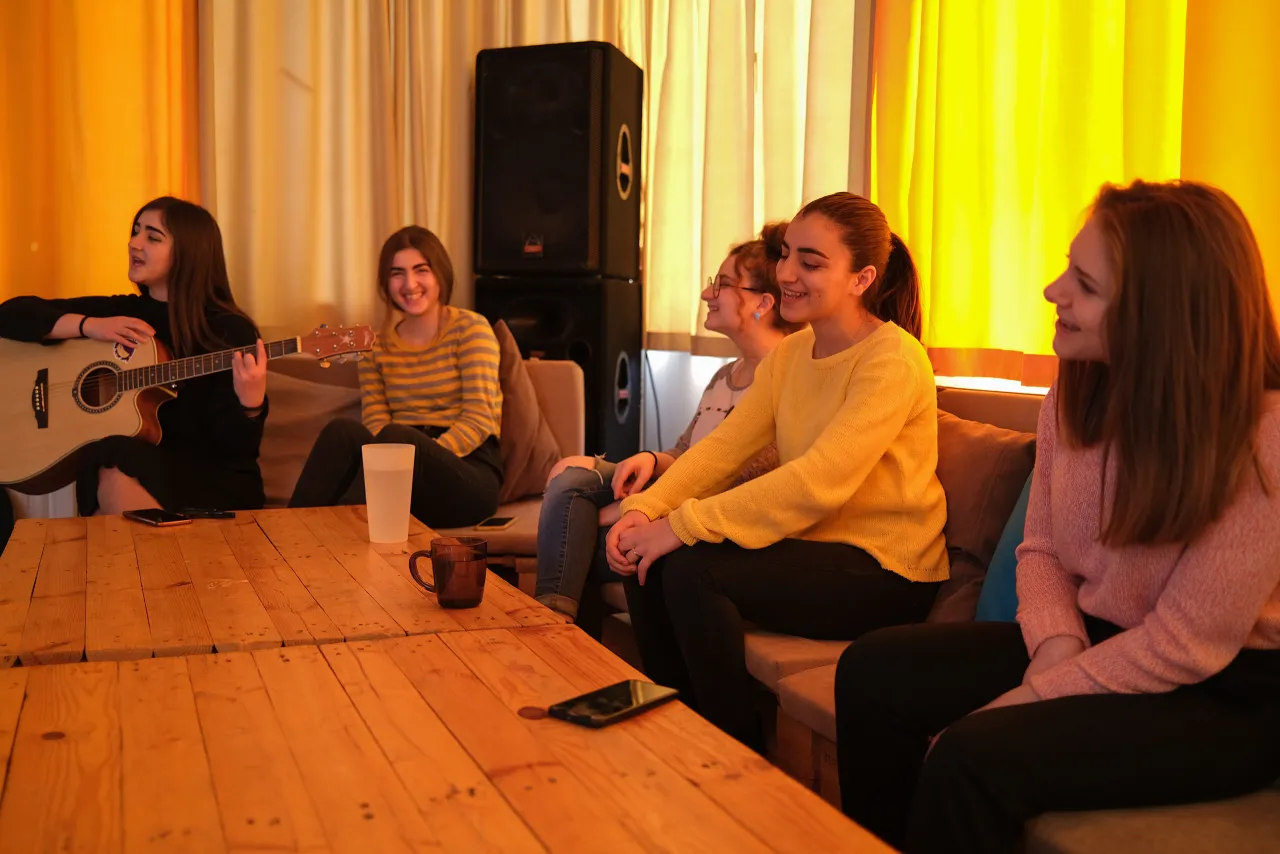
Vahagn has been pursuing new opportunities that have been coming his way. Getting a proper education to become a professional musician is what drives him the most. Which is why, after living in Yerevan for a few months, he decided to go back to the music college and create a band with other students and musicians.
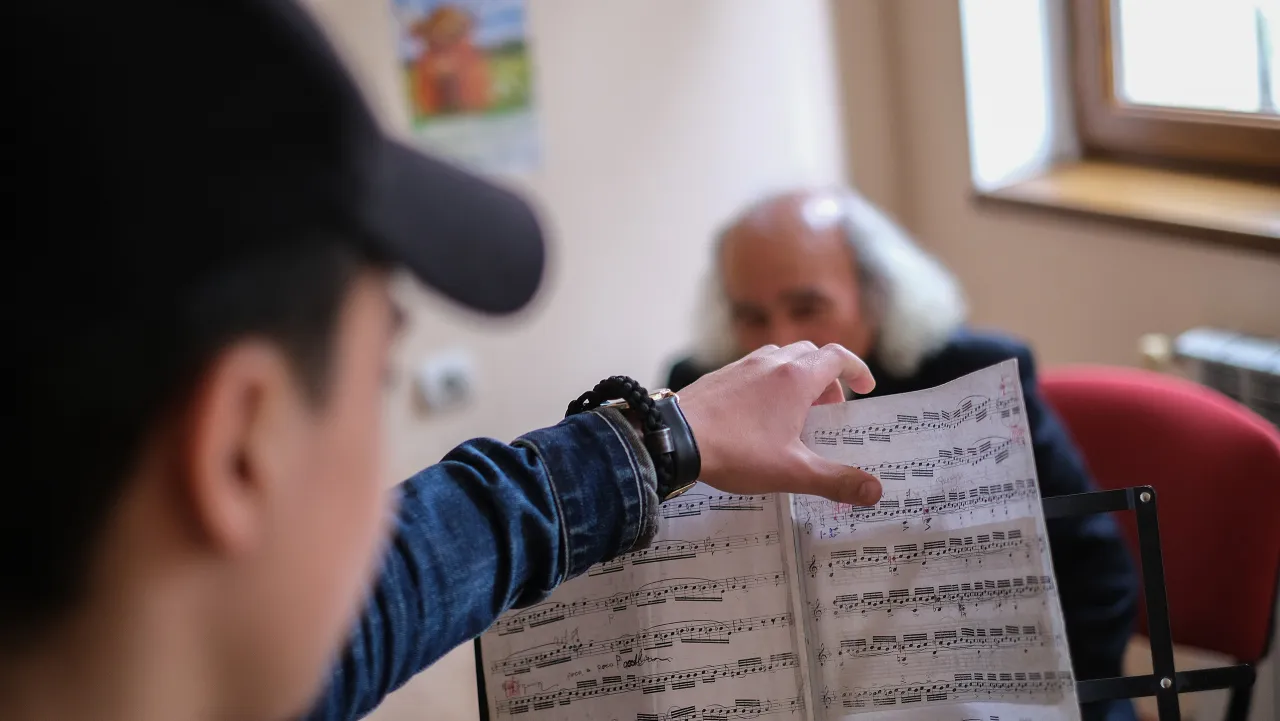
Vahagn now lives with his grandparents, who also fled their village because of the conflict. And while life appears to have returned to some semblance of normality, Vahagn still cannot travel back to his hometown. "It seems to me that war can break out at any time," he says. "I don't know what will happen tomorrow, and maybe I'll have to interrupt my studies again. Earlier, I could dream and make plans, but now I can't." Despite these thoughts, Vahagn does not want to give up on his dreams.
You know, I can't sit back with my arms crossed thinking there is no point in moving forward.
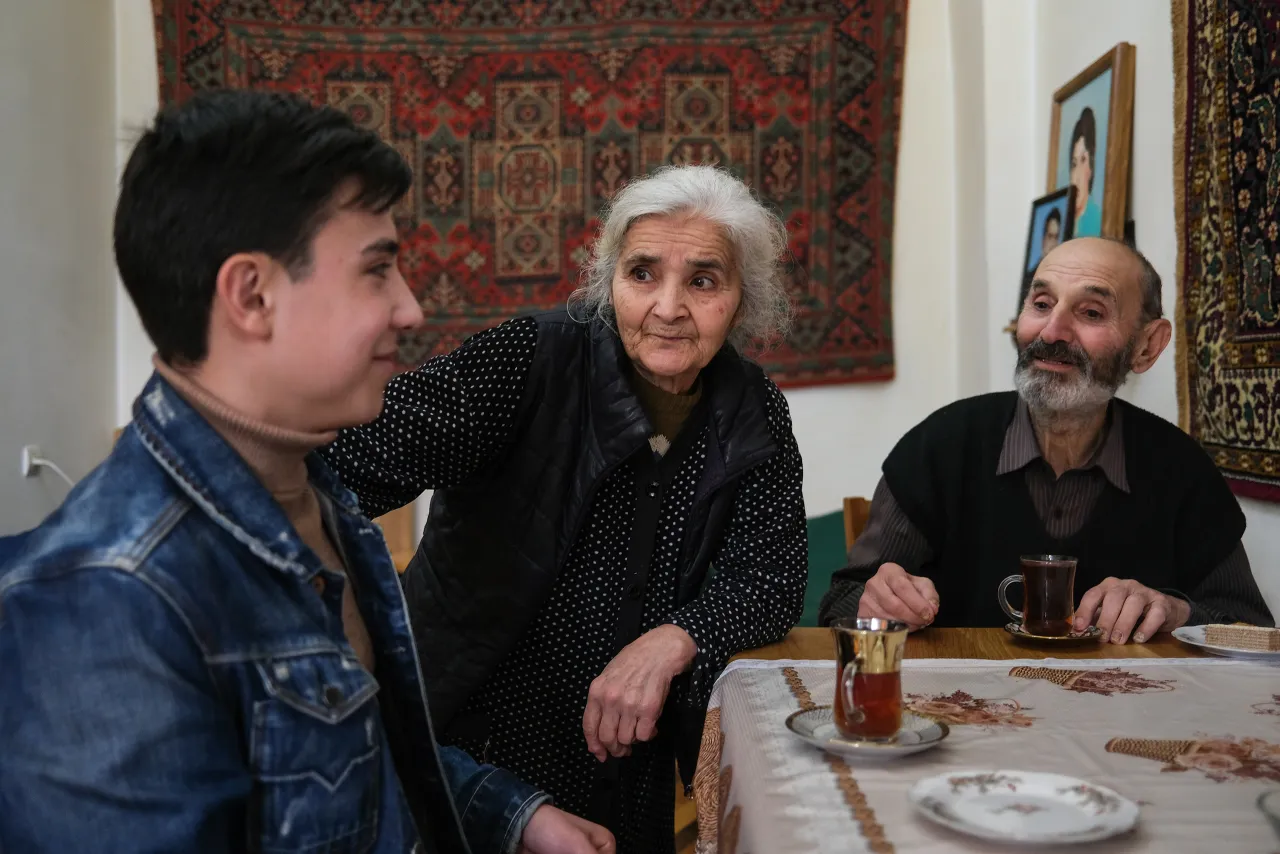
Wars and conflicts change lives, making it difficult to plan for tomorrow. And yet Vahagn chooses to live, learn and move forward every day despite the challenges of being a displaced person. And he makes this choice every day.
